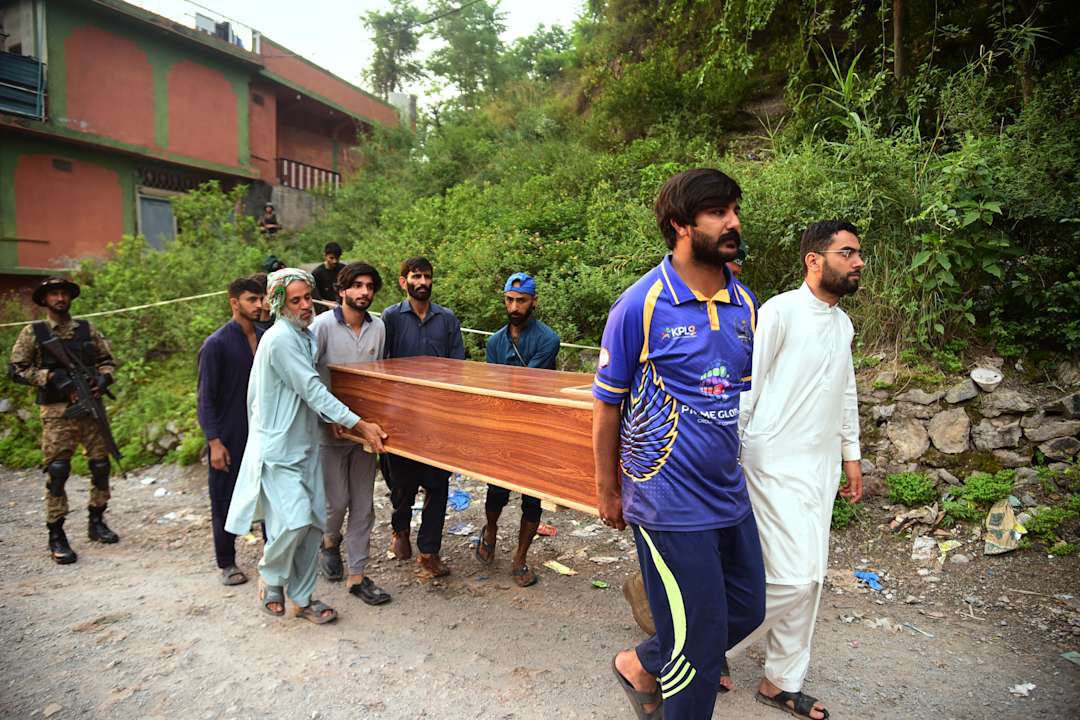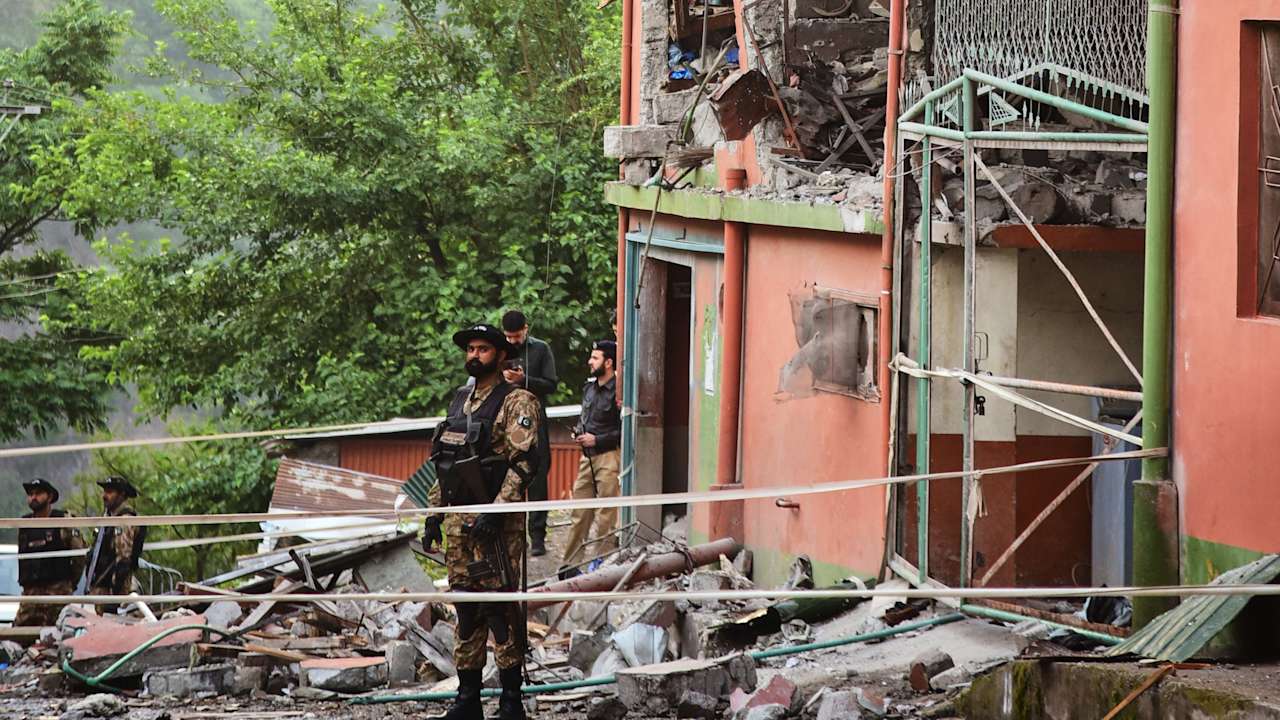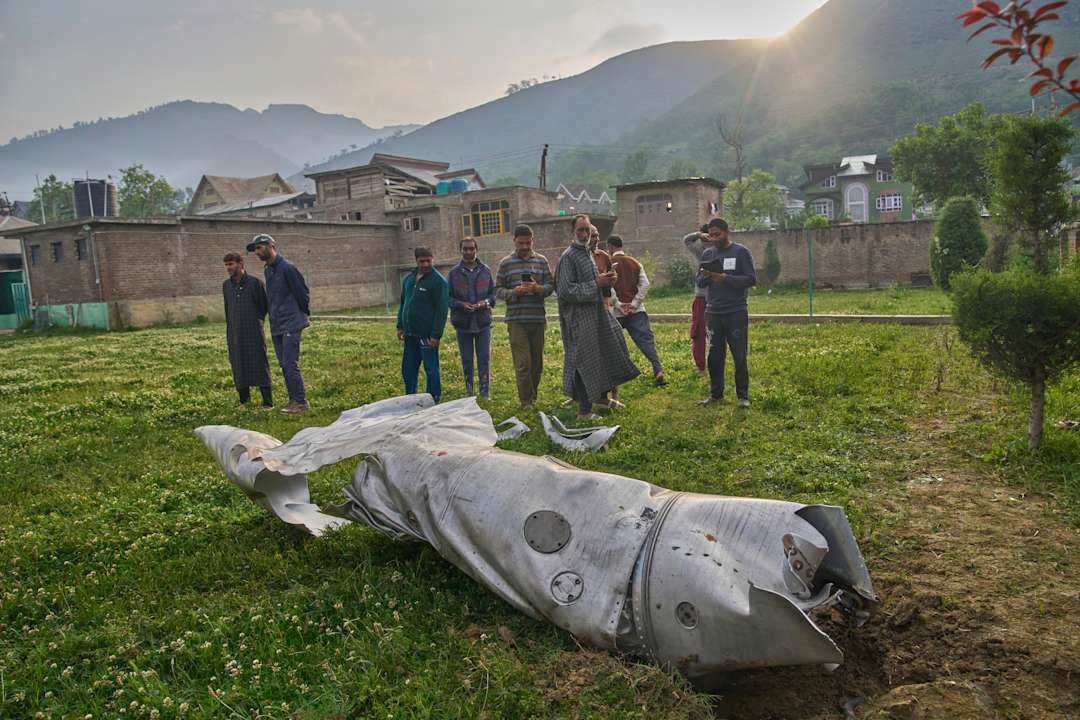Tensions between India and Pakistan have been rising since the late 1940s.
India fired missiles into Pakistani-administered territory in several locations on Wednesday, killing at least 31 people – including a child – and injuring 38, in what Pakistan’s leader called an act of war.
India said it struck infrastructure used by militants linked to last month’s massacre in the Indian-administered portion of Kashmir, in which 26 people were killed.
Speaking on Wednesday morning India’s Foreign Secretary said the attack was “deemed essential”.
“Despite a fortnight having passed since the attacks, there has been no demonstrable step from Pakistan to take action against the terrorists”, Vikram Misri said.
“Instead all it has indulged in is denials, and allegations. Our intelligence monitoring of Pakistan-based terrorist modules indicated that further attacks against India were impending.
“There was thus a compulsion both to deter and to pre-empt.”
He went on to describe the strikes as “measured, non-escalatory, proportionate and responsible.”

In retaliation to the attack, Pakistan claimed it shot down five Indian fighter jets with two planes falling into villages in India-controlled Kashmir.
Pakistan’s Prime Minister Shehbaz Sharif condemned Wednesday’s airstrikes and said the “deceitful enemy has carried out cowardly attacks” and that his country would retaliate.
“Pakistan has every right to give a robust response to this act of war imposed by India, and a strong response is indeed being given,” Sharif said.
Sharif has convened a meeting of the National Security Committee for Wednesday morning.
At least seven civilians were also killed in the region by Pakistani shelling, the Indian army said in a statement.

In a statement posted last night, India claimed nine sites were targeted – all of which, it said, were “terrorist infrastructure”.
The statement continued: “Our actions have been focused, measured and non-escalatory in nature. No Pakistani military facilities have been targeted. India has demonstrated considerable restraint in selection of targets and method of execution.
“These steps come in the wake of the barbaric Pahalgam terrorist attack in which 25 Indians and one Nepali citizen were murdered. We are living up to the commitment that those responsible for this attack will be held accountable.”
ITV News Global Security Editor Rohit Kachroo speaking on News At Ten last night.
It is understood that one of the Indian missiles hit a mosque in the city of Bahawalpur in Punjab, where a child was killed, and a woman and man were injured.
The Pakistani army spokesman, Lt. Gen. Ahmad Sharif, told Pakistani media that the missiles were launched from within Indian territory and that no Indian aircraft had entered Pakistani airspace.
“This was a cowardly attack targeting innocent civilians under the cover of darkness,” Sharif told the broadcaster.

The attacks come amid soaring tensions between the two nuclear-armed nations following a militant attack which killed 26 people in Indian-administered Kashmir. India blamed Pakistan for the attack, a claim which was refuted.
In the UK, The Foreign Office updated its travel advice for the region, warning against all travel within 10 kilometres of the India-Pakistan border, 10 miles of the Line of Control (the de facto border that divides disputed Kashmir between the two countries) and the Balochistan province of Pakistan.
In a statement they said: “On the night of 6 May (UK Time) Pakistan Civil Aviation Authority indicated that it was closing Pakistan airspace for at least 48 hours. There are reports of flights being diverted. British nationals should contact their airline for up-to-date information.
“We are continuing to monitor the situation closely. British nationals should stay up to date with our travel advice and follow the advice of local authorities.”
Subscribe free to our weekly newsletter for exclusive and original coverage from ITV News. Direct to your inbox every Friday morning.
Want a quick and expert briefing on the biggest news stories? Listen to our latest podcasts to find out What You Need To Know…
Follow STV News on WhatsApp
Scan the QR code on your mobile device for all the latest news from around the country





























